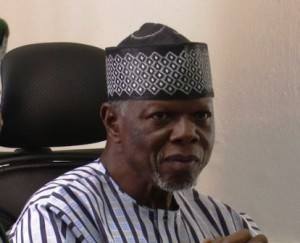
Comptroller General of the Nigeria Customs Service, Hameed Ali has sounded a note of warning to those engaged in activities going in the Export Processing Zones in the country, saying that the zones have become routes for smugglers.
Ali said this in Lagos last week during an interactive session with manufacturers at the 2017 edition of the Manufacturers Association of Nigeria’s Annual General Meeting.
Free Trade Zones are special economic zones where goods may land, be handled, manufactured and re-exported without the intervention of Customs. Within these zones, trade barriers and Customs duties, which prevail in the rest of the country, are minimal or non-functional.
Ali said in addition to the fight he and his men had at the borders, the FTZs were posing challenges to the service as well.
He said some operators would go to the zone, establish something small and then use that as a base for massive importation.
They, according to him, took advantage of the various incentives to import 98 per cent of what they were supposed to produce while producing only two per cent in Nigeria.
“At a time, we saw over 300 truckloads of rice heading towards one of the FTZs and I was wondering what value addition rice was supposed to offer to the operators in the zone,” he said.
Admitting that it was a herculean task for his men to man the over 4,070 kilometres of borders that Nigeria shares with other nations, the Customs Comptroller-General called for synergy between manufacturers and Customs to identify smuggled goods especially rice, in stores.
“The Central Bank of Nigeria has not issued import licence for rice in the last one year but we still see this rice in departmental stores all over the nation. But you as manufacturers know your products. If you can work with us to track the movement of these smuggled goods, it will make our work more effective,” he said.